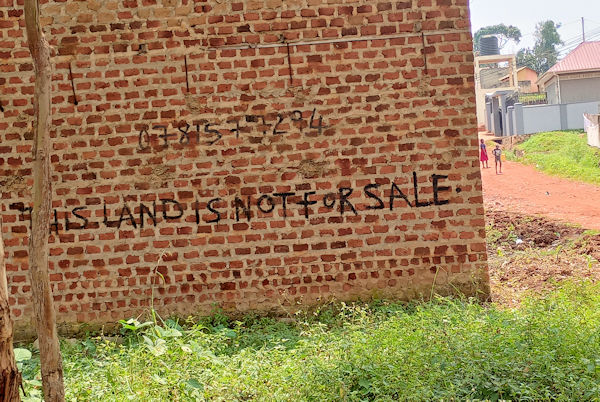As well as recording the details of my trip, I am hoping through this blog to give you a bit of an idea what life in Africa is like. So for this post I am just offering a few random observations.
NOISE:
Africa is noisy. Life goes on at high volume. About 5.30 in the morning the local mosque starts wailing (I know this because I am usually up at 5 for my morning prayer time.) People start going about their business (and making noise doing it) before the sun comes up. Some churches have early morning services, which of course are broadcast out into the community. Market stall holders spruik their wares, sometimes using a recorded message playing on endless loop to save their voices (but not the ears of the hearers.) Someone has their favourite playlist running continually. Television sets run all day, even when nobody is in the room. (This baffles me. I have seen some of the TV programs offered here, when I was not able to avoid them, and they are even worse than some of the rubbish we have on telly at home. Why anyone would want to pump that garbage into the atmosphere of their home is beyond me.) People talk loudly on their phones in even the most public of places. (Just as in Australia. I have never been able to understand how people can have the most personal and private of conversations in public – such as on a crowded train – then complain of invasion of privacy if a security camera happens to catch them as they walk down the street.)
And the noise doesn’t stop at night. There appears to be no regulations about noise control after certain hour – or if such laws exist, they are totally ignored (just like the road rules.) People can be still hammering and banging at midnight. Roosters whose internal clock is waaay off assert their authority over their harem in the wee small hours. Guard dogs go off in a fury of barking at the slightest provocation. It’s annoying if you are trying to sleep, yet at the same time strangely comforting: life is going on all around.
Strangely, one area where there is not noise is on the road. Of course there are the engine sounds of everything from boda-bodas to tuk-tuks to massive trucks, generally greatly overloaded. But there is not the frantic blaring of horns that is the soundtrack of roads in Asia. There is none of the aggressive blasts (“Get out of my way!” and “You’re an idiot!”) heard in Australia. At most there is a gentle toot (“Watch out, I’m passing” and “Thank you for letting me pass”).
Land:

I had seen this sign last time I was here, and was curious about it. The sign actually appears multiple times in different places around this block. This time I commented to my driver that I would love to know the story behind it. He pointed out that it is a very big block (I would guestimate 1 to 1.5 acres) and told me that when the original owner died, instead of willing it to be split between his family he willed to to the whole family to be held in common. If it is ever to be sold, it has to be by a decision of the whole family made together. No one member can sell it, or even part of it. The sign is to prevent anyone in the family from trying to sell without the agreement of the rest of the family (obviously a few family trust issues happening here.) I had assumed something similar, but I thought that maybe someone who had no claim on the land at all had tried to sell it. I have heard of this being done in Africa, and actually being carried through so that the real owner has had to battle the unwitting buyer in court.
Livestock:
Unlike Australia, there are no laws about where you can keep animals, or what you can keep (or again, if such laws exist they are totally ignored.) In Australia, in the house where I lived before I moved into the caravan, even with a very large yard, I would have been able to keep a maximum of five chickens or ducks, and absolutely no roosters or any other form of “farm” animal. Here virtually everyone has chickens and roosters, sometimes ducks or geese. Anyone with more than a pocket handkerchief of land has other livestock as well. Goats rule along every roadside, and it’s not unusual to have to wait for a recalcitrant cow to move her backside before you can proceed down the road.
Pets, on the other hand, are rare. Dogs and cats are working animals: cats to keep the mouse population down, and dogs to guard the compounds. (As I have mentioned before, security is a major issue here. All but the poorest of houses are in locked compounds surrounded by high walls, generally topped with nails, barbed wire, or broken glass.) The idea that a dog or cat would be kept just as a companion animal is simply not on their radar.